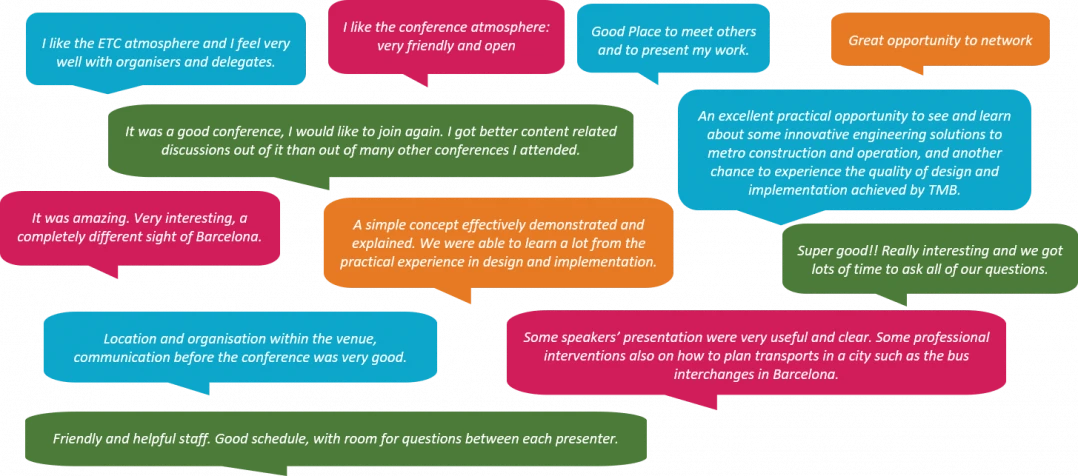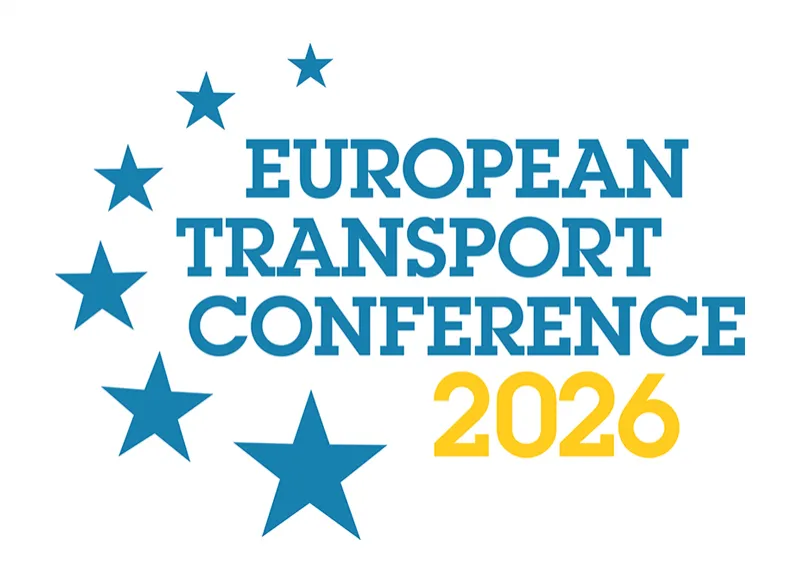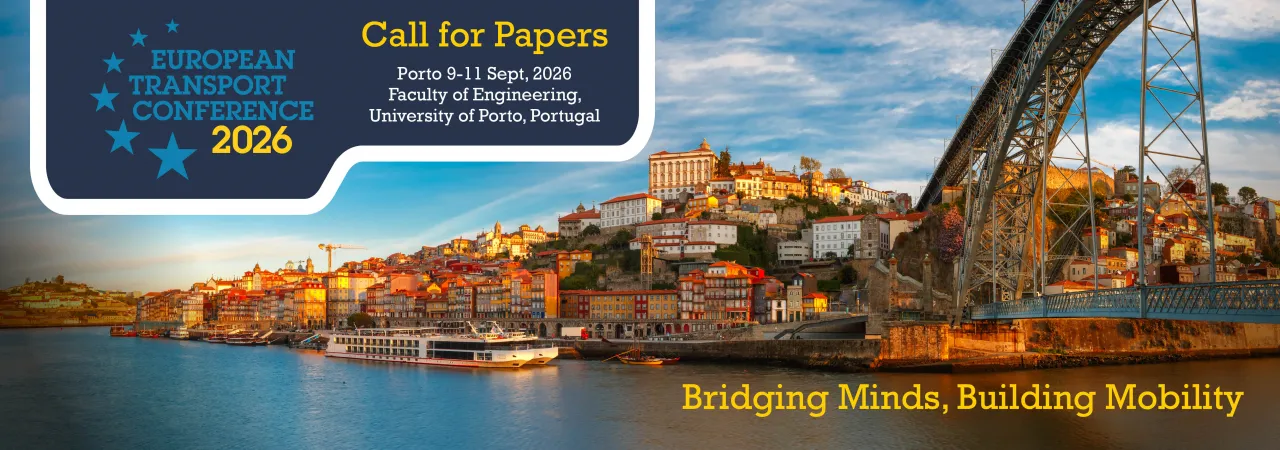ETC 2026 - Topics
Bridging Minds, Building Mobility
The conference covers a wide range of transport topics, from local to global, from aviation to active modes, from research, modelling and financing to implementation, delivery and evaluation, from short term solutions to long term planning. We discuss matters of policy at the highest level through to the finest detail of analyses and design.
This range of topics and our multi-stream format makes ETC the most comprehensive and in-depth among European transport conferences, and it has established itself as the premier event of its type.
We invite abstracts on completed projects, as well as work in progress, because valuable insights can be gained at every phase of a project. We aim to be a forum for professional dialogue and are happy to offer delegates the opportunity to introduce a specific question, problem or dilemma for the speaker and audience to reflect on together. We are also open to proposals for special sessions or for side events.
We aim to be a platform for transport professionals on a wide range of topics. The conference covers transport solutions for all modes, from walking and cycling to aviation, and for people and freight. The following list of themes is for your inspiration. In addition to these topics, we welcome papers on all types of transport issues, from research to delivery.
-
Moving the transport system into a low/no carbon age and a circular economy
-
Sustainable transport and access in a polarised world
-
Transport planning and delivery in times of decreasing budgets
-
New ways to provide public transport that is viable and fit for purpose
-
Adaptability and resilience in transport systems and decision-making
-
Shortages in labour, resources, infrastructure and energy in freight and passenger transport
-
Use of technology, data, Artificial Intelligence and digital twins in transport systems and transport research
-
Safe, efficient, healthy and inclusive transport schemes for current and future generations
-
Cities that provide access and comfort for all ages and capabilities
-
The 21st century planners’ toolkit: fit for purpose models, methodologies and decision support systems
Facts and Stats from ETC 2025
Why attend the 2026 European Transport Conference?
- First-class speakers
- Thought-provoking research sessions
- Networking with international colleagues
- Access to conference papers
- Open access and publication of papers
- Coverage of major themes
- Over 250 papers presented
- Up to 10 parallel sessions per day
- 3 days of networking, presentations, activities
- Around 550 delegates
- Attendees from over 30 countries worldwide
- Conference app for access to the seminar programme, fellow delegates, exhibitor information, social programme and technical visits
- Programme Committee meetings
- Exhibitor area and access to sponsors
- Social programme
- Local visits of interest

























